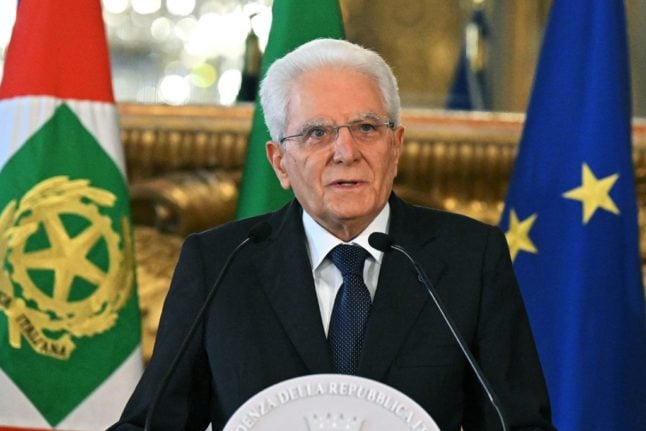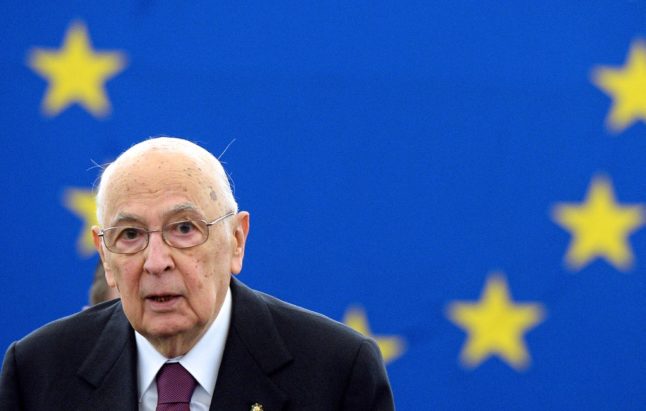Official sources confirmed on Friday night that former president and communist, Napolitano, has died in Rome after weeks in hospital.
Undersecretary of State Alfredo Mantovano has ordered a state funeral on Tuesday, which will be accompanied by a national day of mourning, according to Italian news agency Ansa.
In office between 2006 and 2015, Napolitano was considered a stalwart of stability during a particularly turbulent period in Italy – from the truncated premiership of Romano Prodi to the curtailed mandates of Silvio Berlusconi, Mario Monti and Enrico Letta.
The country also experienced its gravest economic recession since the post-war period.
In 2013, Napolitano agreed to serve an unprecedented second term amid a fierce political deadlock, but resigned two years later because of his advancing age, opening up the post to Sergio Mattarella.
Italy’s current president, Mattarella, wrote, “I am deeply saddened by his death” and “I extend to his family the condolences of the entire nation”.
“In Giorgio Napolitano’s life, is mirrored a large part of the history of the second half of the 20th century, with its dramas, its complexity, its goals and its hopes,” he added.

Former Italian prime minister, Mario Draghi, described Napolitano as “an absolute protagonist of Italian and European history over the last seventy years”.
At the opposite end of the political spectrum, Italy’s currently serving far-right prime minister, Giorgia Meloni, expressed her condolences on behalf of the government.
Born in Naples on June 29th, 1925 into a family of intellectuals, Napolitano took part in the resistance against Nazi and fascist troops during World War II, founding a communist group.
At the end of the war, he joined the Italian Communist Party and was elected to parliament in 1953 after earning a law degree.
Napolitano was one of the most influential leaders of the party’s reformist wing, although he notoriously supported the Soviet Union’s invasion of Hungary in 1956 to crush a liberal revolution.
With the collapse of the USSR, the Italian Communist Party was officially disbanded in 1991.
After turns as lower house speaker, interior minister and leftwing MEP, he became Italy’s first ex-communist to be elected president in 2006.
The veteran held the rare quality of being respected by both right and left and an ability to stay above the party political fray.
He is survived by his wife, Clio, whom he married in 1959, and his two sons Giovanni and Giulio.



 Please whitelist us to continue reading.
Please whitelist us to continue reading.
Member comments